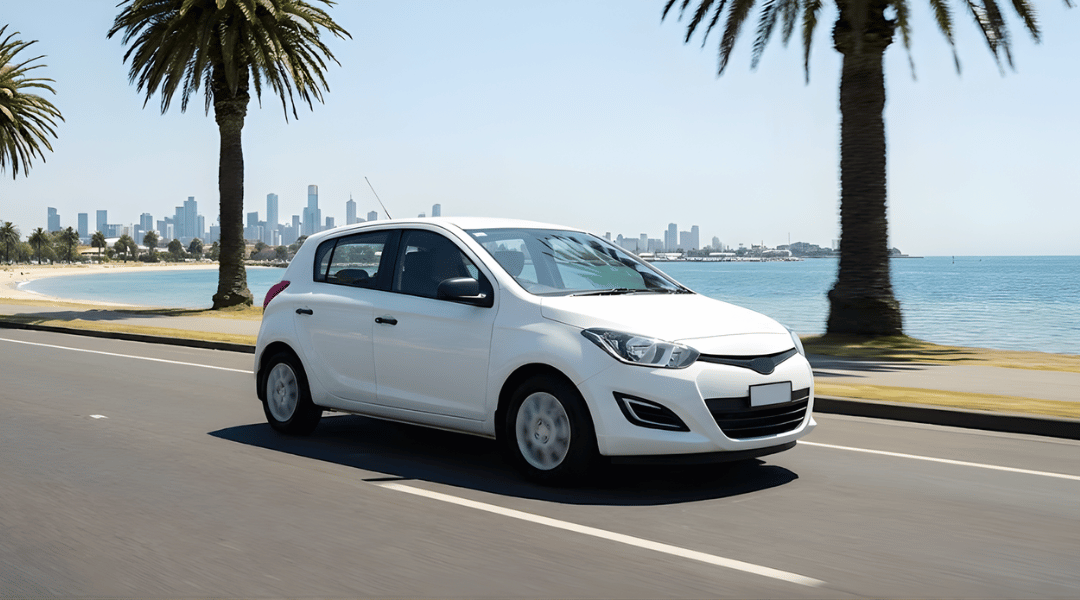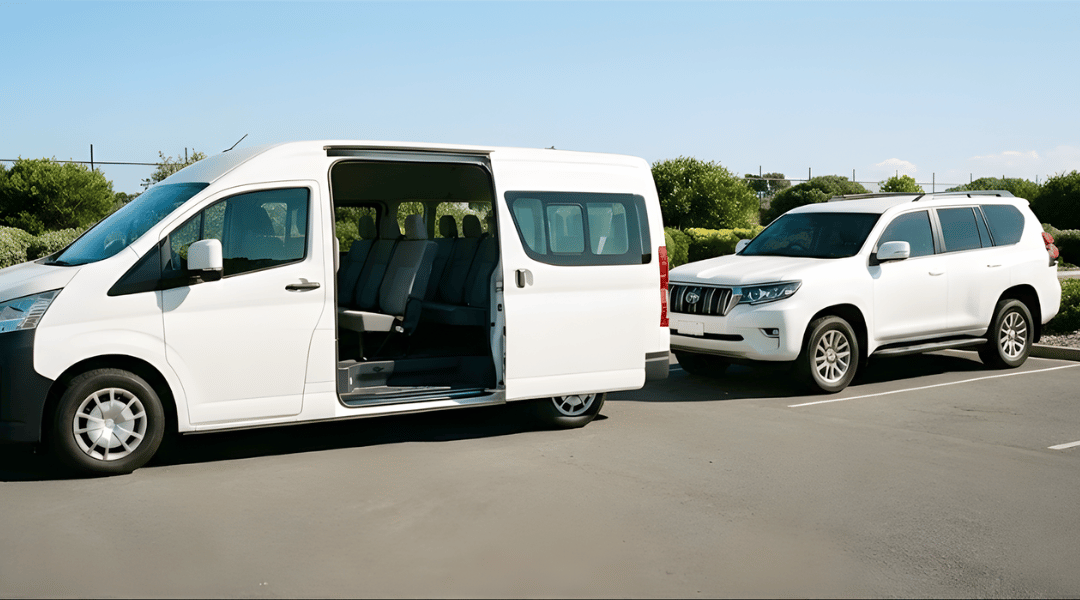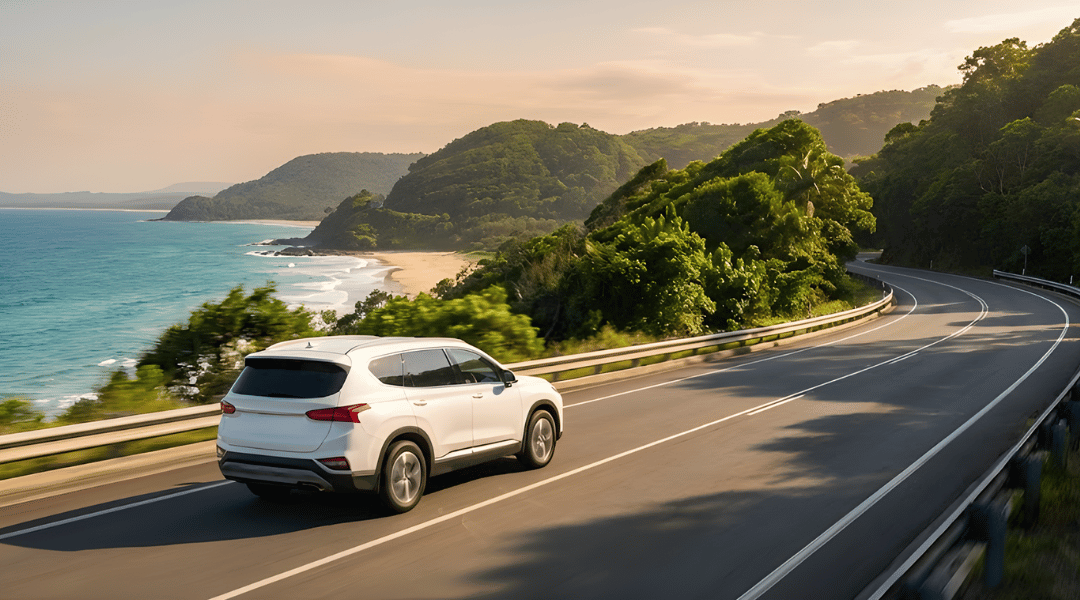Renting a car in Sydney can be a fantastic way to explore the city and its surrounding regions at your own pace. However, it’s essential to navigate the car rental process with caution to avoid potential pitfalls. By understanding the basics of car rental, choosing the right vehicle, and following safety guidelines, you can ensure a smooth and enjoyable experience.
Understanding Car Rental Basics
Before you embark on your car rental journey, it’s crucial to understand the fundamental aspects of car rental:
Driver’s License:
- Ensure your driver’s license is valid and up-to-date.
- For international drivers, an International Driving Permit (IDP) is often required.
Age Restrictions:
- Most rental companies have a minimum age requirement, usually 21 or 25 years old.
- Younger drivers may face additional fees or restrictions.
Insurance Coverage:
- Collision Damage Waiver (CDW): This covers damage to the rental car.
- Third-Party Liability Insurance: This covers damage to other vehicles or property.
- Personal Accident Insurance (PAI): This covers medical expenses for the driver and passengers.
Fuel Policy:
- Full-to-Full: You’ll be responsible for refilling the tank to the same level as when you picked up the car.
- Pre-Paid Fuel: You’ll pay for a pre-determined amount of fuel upfront.
Additional Fees:
- Airport Fees: Additional fees may apply for airport pickups and drop-offs.
- Young Driver Fee: Younger drivers may be charged an extra fee.
- One-Way Rental Fees: Fees may apply if you’re returning the car to a different location.
Choosing the Right Rental Car for Your Sydney Adventure
When selecting a rental car, consider your specific needs and preferences. Here are some popular vehicle categories:
Compact Cars
- Ideal for: Solo travellerss or couples on a budget.
- Benefits: Fuel-efficient, easy to maneuver in city traffic, and affordable to rent.
- Drawbacks: Limited legroom and cargo space, particularly for longer trips or larger luggage.
Sedans
- Ideal for: Small families or groups of friends.
- Benefits: Comfortable seating, ample trunk space for luggage, and good fuel efficiency.
- Drawbacks: May not be ideal for large groups or those with extensive luggage.
SUVs
- Ideal for: Families, groups, or those who need extra cargo space.
- Benefits: Higher ground clearance, all-wheel drive (in some models) for better handling on various road conditions, and ample space for luggage.
- Drawbacks: Less fuel-efficient than smaller cars and may be more expensive to rent.
Minivans
- Ideal for: Large families or groups.
- Benefits: Ample seating capacity, plenty of storage space, and often include features like built-in child seats.
- Drawbacks: Can be less fuel-efficient and more difficult to maneuver in tight spaces.
Additional Considerations:
- Baggage Capacity: Ensure the vehicle has enough space for your luggage.
- Fuel Efficiency: Consider the vehicle’s fuel efficiency to minimize fuel costs.
- Driving Conditions: If you plan to drive on unpaved roads or in mountainous areas, a 4WD vehicle may be more suitable.
- Special Features: Check for features like automatic transmission, air conditioning, and GPS navigation.
- Insurance Coverage: Ensure you have adequate insurance coverage, including collision damage waiver (CDW) and liability insurance.
Essential Documents and Licenses
Driver’s License:
- Valid Driver’s License: You must possess a valid driver’s license from your country of residence.
- International Driving Permit (IDP): While not always mandatory, an IDP can be helpful, especially for international visitors. It serves as an official translation of your driver’s license.
Age Restrictions:
- Minimum Age: Most rental companies require drivers to be at least 21 years old.
- Young Driver Fees: Drivers under a certain age may be subject to additional fees.
Insurance Coverage
Understanding Rental Car Insurance:
- Collision Damage Waiver (CDW): This coverage reduces your liability for damage to the rental vehicle.
- Third-Party Liability Insurance: This covers damage to other vehicles or property.
- Personal Accident Insurance (PAI): This covers medical expenses for the driver and passengers.
Additional Considerations:
- Excess Reduction: Consider purchasing excess reduction coverage to lower your liability in case of an accident.
- Roadside Assistance: Check if the rental company offers roadside assistance, which can be helpful in case of breakdowns or accidents.
Fuel Policies
-
Full-to-Full Policy:
- You receive the vehicle with a full tank of fuel.
- You are responsible for refilling the tank before returning the vehicle.
- This policy is common and straightforward.
-
Pre-Paid Fuel:
- You pay for a pre-determined amount of fuel upfront.
- Any unused fuel will be refunded to you.
- This can be convenient, especially if you’re unsure of your fuel consumption.
Navigating Sydney’s Roads Safely
Road Rules and Regulations:
- Speed Limits: Adhere to speed limits, which are typically lower in urban areas and higher on highways.
- Traffic Signals: Follow traffic signals and road signs.
- Roundabouts: Yield to traffic already on the roundabout.
- Lane Markings: Pay attention to lane markings and use them correctly.
- Pedestrian Crossings: Yield to pedestrians at crosswalks.
Driving Etiquette:
- Defensive Driving: Always be aware of your surroundings and anticipate potential hazards.
- Courtesy: Be courteous to other drivers and pedestrians.
- Mobile Phone Use: Avoid using your mobile phone while driving.
- Seatbelt Use: Ensure all passengers are wearing seatbelts.
Road Conditions and Hazards:
- Traffic Congestion: Be aware of peak-hour traffic, especially in the CBD.
- Roadworks: Check for roadworks and detours, especially during major events.
- Wildlife: Watch out for wildlife, particularly kangaroos, especially on rural roads.
- Weather Conditions: Be prepared for sudden changes in weather, such as rain, fog, or strong winds.
Factors to Consider When Choosing a Rental Car
1. Group Size and Luggage:
- Solo Travelers and Couples: A compact car or a small sedan is ideal for soltravellersrs or couples with minimal luggage. These vehicles offer good fuel economy and are easy to maneuver in city traffic.
- Small Families or Groups of Friends: A mid-size sedan or a compact SUV is a suitable option for small groups. These vehicles provide ample space for passengers and luggage.
- Large Families or Groups: A minivan or a larger SUV is ideal for accommodating larger groups and plenty of luggage. These vehicles offer spacious interiors and comfortable seating.
2. Driving Conditions:
- City Driving: A compact car or sedan is perfect for navigating city streets and finding parking.
- Countryside Exploration: An SUV or 4WD vehicle is ideal for exploring the Australian countryside, as it can handle unpaved roads and rough terrain.
3. Budget:
- Budget-Friendly: Compact cars and economy cars are the most budget-friendly options.
- Mid-Range: Mid-size sedans and SUVs offer a balance between affordability and comfort.
- Luxury: Luxury cars provide a premium experience but come with higher rental costs.
Additional Considerations:
- Insurance Coverage: Ensure you have adequate insurance coverage, including collision damage waiver (CDW) and liability insurance.
- Fuel Policy: Understand the fuel policy, whether it’s a full-to-full or pre-paid fuel option.
- Age Restrictions: Some rental companies have age restrictions for drivers.
- Driver’s License: Make sure your driver’s license is valid and international if necessary.
- Road Rules and Regulations: Familiarize yourself with Australian road rules and regulations, including speed limits, traffic signs, and roundabouts.
Parking in Sydney
On-Street Parking:
- Metered Parking: Pay for parking using coins, notes, or a parking app.
- Time Limits: Adhere to time limits to avoid fines.
- Parking Inspectors: Be aware of parking inspectors who may issue fines for illegal parking.
Off-Street Parking Garages:
- Secure Parking: Park your car in a secure, well-lit parking garage.
- Book in Advance: During peak times, book parking in advance to secure a spot.
- Compare Prices: Check prices from different parking garages to find the best deal.
Parking Meters and Time Limits:
- Pay and Display: Use parking meters to pay for your parking time.
- Time Limits: Adhere to time limits to avoid fines.
- Mobile Parking Apps: Use mobile apps to pay for parking and extend your parking time.
Dealing with Traffic and Congestion
Peak Hour Traffic:
- Avoid Peak Times: If possible, avoid driving during peak hours (morning and afternoon rush hour).
- Use Public Transport: Consider using public transport, such as trains or buses, to avoid traffic congestion.
- Carpooling: Share rides with friends or colleagues to reduce traffic.
Traffic Jams:
- Stay Calm: Avoid aggressive driving and road rage.
- Use Real-Time Traffic Updates: Use GPS navigation or traffic apps to find alternative routes.
- Be Patient: Traffic jams are a common occurrence in Sydney, especially during peak hours.
Using GPS Navigation:
- Plan Your Route: Use a GPS navigation system to plan your route and avoid traffic congestion.
- Real-Time Traffic Updates: Use real-time traffic updates to find the best route.
- Avoid Distracted Driving: Use the GPS navigation system safely and avoid distractions.
Emergency Procedures
Breakdown Assistance:
- Contact Your Rental Car Company: Contact the rental company’s roadside assistance service.
- Emergency Kit: Keep an emergency kit in your car, including a first-aid kit, water, snacks, and a phone charger.
- Stay Safe: If you break down, stay in your car, especially at night.
Accident Procedures:
- Stay Calm: Assess the situation and prioritize safety.
- Call Emergency Services: If necessary, call emergency services.
- Exchange Information: Exchange contact and insurance information with the other driver.
- Document the Accident: Take photos of the damage to both vehicles and the accident scene.
- Contact Your Rental Car Company: Inform the rental company about the accident and follow their instructions.
Tips for a Smooth Car Rental Experience
Booking Your Rental Car
- Online Booking:
- Convenience: Book your rental car from the comfort of your home.
- Best Deals: Compare prices and find the best deals online.
- Pre-select Options: Choose your preferred vehicle, insurance coverage, and additional features.
- In-Person Booking:
- Flexibility: You can ask questions and get personalized advice.
- Last-Minute Rentals: If you need a car immediately, in-person booking might be the best option.
Best Time to Book:
- Advance Booking: Book your rental car well in advance, especially during peak seasons.
- Weekday Rentals: Weekday rentals are often cheaper than weekend rentals.
- Off-Peak Seasons: Consider renting a car during off-peak seasons for better deals.
Hidden fees:
- Additional Driver Fees: Check if there are additional fees for additional drivers.
- Young Driver Fees: Drivers under a certain age may incur extra charges.
- One-Way Rental Fees: If you plan to return the car to a different location, there may be additional fees.
- Airport Fees: Airport pick-ups and drop-offs may incur additional fees.
Picking Up and Dropping Off Your Rental Car
Airport vs. City Center Pick-Up:
- Melbourne Airport Pick-Up: Convenient for travellers arriving by air.
- City Center Pick-Up: Ideal for those already in the city or staying in a hotel.
Inspection Process:
- Thorough Inspection: Check the vehicle for any pre-existing damage and document it with the rental company.
- Take Photos: Take photos of the vehicle’s exterior and interior to document its condition.
- Mileage Reading: Note the initial mileage reading.
Returning the Vehicle:
- Fuel Policy: Ensure you follow the fuel policy, whether it’s a full-to-full or pre-paid fuel option.
- Final Inspection: The rental company may conduct a final inspection of the vehicle.
- Return on Time: Avoid late return fees by returning the vehicle on time.
FAQs About Car Rental in Sydney
1. What is the minimum age to rent a car in Sydney?
- Most rental companies in Sydney require drivers to be at least 21 years old. However, some companies may have higher age requirements, especially for certain vehicle categories.
2. Do I need an International Driving Permit (IDP) to rent a car in Sydney?
- While an IDP is not strictly mandatory for all international visitors, it’s highly recommended. An IDP serves as an official translation of your driver’s license and can simplify the rental process.
3. What type of insurance is included in a car rental?
- Rental car insurance typically includes third-party liability insurance, which covers damage to other vehicles or property. You may also want to consider additional coverage options like collision damage waiver (CDW) and personal accident insurance.
4. What are the common road rules and regulations in Sydney?
- Drive on the Left Side: Remember to drive on the left side of the road.
- Speed Limits: Adhere to speed limits, which are typically measured in kilometres per hour.
- Roundabouts: Give way to traffic already on the roundabout.
- Seatbelt Laws: All passengers must wear seatbelts.
- Mobile Phone Use: Avoid using mobile phones while driving.
5. What are the best tips for safe driving in Sydney?
- Defensive Driving: Always be aware of your surroundings and anticipate potential hazards.
- Weather Conditions: Be aware of weather conditions, especially during rain or fog.
- Wildlife: Watch out for wildlife, particularly kangaroos, especially on rural roads.
- Road Signs and Signals: Pay attention to road signs and traffic signals.
- Speed Limits: Adhere to speed limits to avoid fines and accidents.
6. What are the popular tourist destinations near Sydney?
- Blue Mountains: A stunning mountain range with breathtaking views.
- Jervis Bay: A coastal paradise with pristine beaches and crystal-clear waters.
- Hunter Valley: Renowned for its wineries and gourmet food.
- Central Coast: Beautiful beaches, coastal towns, and national parks.
7. What are the common parking options in Sydney?
- On-Street Parking: Pay-and-display parking meters are common in city centres and popular tourist areas. Be sure to check the time limits and parking restrictions.
- Off-Street Parking: Parking garages and car parks are available in many locations, especially in the CBD and popular tourist areas.
- Free Parking: Some areas, particularly in residential neighbourhoods, may offer free street parking. However, it’s important to check for any restrictions or time limits.
8. What are the fuel costs like in Sydney?
- Fuel prices in Sydney can fluctuate, but they are generally comparable to other major cities in Australia. It’s advisable to compare fuel prices at different petrol stations to find the best deals.
9. What are the toll roads in Sydney and how do I pay them?
- Sydney has a network of toll roads, including the M2, M4, M5, and the Cross City Tunnel. You can pay tolls using cash, a credit card, or an electronic toll tag. It’s recommended to register for an electronic toll account to avoid manual payment and potential penalties.
10. What should I do if I get a flat tyre or another mechanical issue?
- If you encounter a breakdown, contact your rental car company’s roadside assistance service. They will provide guidance and assistance, including towing services if necessary.
Conclusion
By following these tips and guidelines, you can ensure a safe and enjoyable car rental experience in Sydney. Remember to plan your trip, choose the right vehicle, and follow local traffic rules and regulations.
With careful planning and preparation, you can explore the stunning city of Sydney and its surrounding areas with ease and confidence.
Experience the Best of Sydney with Alpha Car Hire
Alpha Car Hire offers a seamless and convenient car rental experience in Sydney. With a wide range of vehicles, competitive rates, and exceptional customer service, we’re your ideal partner for exploring the city and beyond.
Why Choose Alpha Car Hire?
- Wide Range of Vehicles: From compact cars to spacious SUVs, we have the perfect vehicle to suit your needs and budget.
- Competitive Rates: Enjoy affordable car rental rates without compromising on quality.
- Easy Booking Process: Book your car rental online in just a few simple steps.
- 24/7 Customer Support: Our dedicated team is available round-the-clock to assist you.
- Flexible Rental Terms: Choose from a variety of rental options to suit your schedule and preferences.
Ready to Hit the Road? Experience the freedom of the open road with Alpha Car Hire.
[/vc_column_text][/vc_column][/vc_row][vc_row css=”.vc_custom_1727246131169{padding-top: 40px !important;}”][vc_column][vc_raw_html]JTVCcG9kcyUyMG5hbWUlM0QlMjJjYXJfaGlyZV9sb2NhdGlvbnMlMjIlNUQlN0IlNDBjYXJfaGlyZV9sb2NhdGlvbnMlN0QlNUIlMkZwb2RzJTVE[/vc_raw_html][/vc_column][/vc_row]




